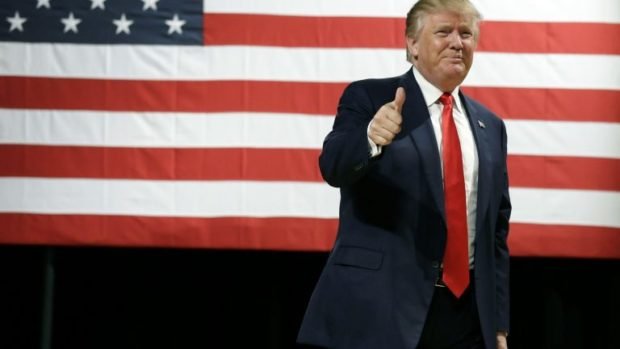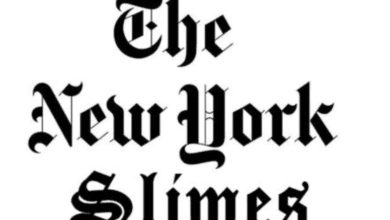Free Traders: “Blame America First!”
It appears that Ron Paul supporters are not the only ones who profess Blame America First views. It seems that free traders also advocate such views.
But while paulbots attack America’s entire foreign and defense policy, free traders “only” object to any criticism of America’s trade rivals and to any attempt to protect America’s industrial base from unfair competition (dumping).
A case in point is a recent post published on the pro-free-trade Heritage Foundation’s blog, the Foundry, where the author, Brian Riley, writes:
“A recent news report was headlined: “Lawmakers, business groups balk at trade deal with protectionist Japan.” A more accurate title would have been: “Protectionist U.S. lawmakers, special-interest groups balk at trade deal with Japan.””
Why did he say so? Because, horror of horrors,
“Over 40 Members of Congress recently wrote to President Obama to express concern about allowing Japan to join Trans-Pacific Partnership (TPP) trade negotiations.”
Oh-my-gosh! Not allowing Japan to join TPP negotiations? What a horrible crime!
Sen. Stabenow of Michigan says:
“Opening U.S. markets to more Japanese products while Japan keeps its market closed to American automakers simply does not make sense.”
Oh-my-gosh! What a heresy against the Free Trade Is Good For America Dogma!
The blogpost, titled Trade: Japan Protectionist?, ridiculously claims that the US is more protectionist than Nippon and that protectionism is bad for the country which practices it:
“There’s no doubt that Japan maintains too many self-destructive trade barriers. But Japan is not much different from the United States in this regard. In 2011, Japan’s imports were 16.1 percent as large as its economy, similar to the level of import penetration in the United States (17.8 percent). And things are getting better. The size of imports relative to Japan’s economy has increased by 60 percent during the past 10 years.”
Only an economically illiterate person would claim that. Protectionist trade barriers are, as we shall see below, good for the country that maintains them, not “self-destructive”. Secondly, America’s trade market, with the exception of a few types of goods, is completely open, free of charge, without any but the most miniscule tariffs, to foreign products. The US is, quite literally, allowing Japan and other countries to dump its market with their goods and to kill the US industry.
As for imports as a portion of GDP, Riley’s own statistics, quoted above, show that the US imports significantly more (as a share of its economy and in absolute numbers alike) than Japan: 17.8% vs Japan’s 16%.
And the US has been running huge trade deficits – the largest of any country in world history – continously since the early 1990s: $10 trillion since Daddy Bush’s times. America’s trade deficit last year alone was $745 bn per the CIA World Factbook. With Japan, the US has been running consecutive, large trade deficits for decades, and last year’s US trade deficit with Nippon was the largest ever between the two countries.
Moreover, to increase exports to America still further, Prime Minister Abe has recently convinced the Bank of Japan to devalue the yen by 20%.
Look for America’s trade deficit with Japan to increase.
Now, why are imports bad? Why are exports good? Why are trade deficits a problem and trade surpluses a good thing?
Because exports mean selling things to other people (abroad), which means people have to be hired to produce these things, which means jobs are created.
Imports, OTOH, mean that foreigners are hired to produce things that you buy, and thus, jobs are created abroad, not in the US. American companies actually lose jobs as a result of imports, because the things imported to the US would otherwise be made by American companies employing American workers.
As a historian, I can attest that no country has ever become an economic power by indulging in free trade policies.
Every country that ever became an economic power became one by protecting and nurturing its industry: England under the Acts of Navigation and into the 19th century, France under Colbert and Napoleon, Germany from the Customs Union to the end of WW1, the US from 1861 to the 1960s, postwar Japan, China today.
Protectionism (i.e. economic nationalism) is the policy of ascendant economic powers; free trade, the policy of descendant ones, which put consumption before savings, finance over manufacturing, and today before tomorrow.
The US became the world’s preeminent economic power during the 18th and early 19th century because it followed Hamiltonian preceipts: Manufacturing, not finance, is the economic muscle of the nation. Exports are preferrable to imports. Trade surpluses are better than trade deficits. To grow the economy and provide well-paying jobs to the populace, America’s own industry must be protected and nurtured.
But in the late 20th century, American politicians of both parties, goaded by the business lobby and the greedy CEOs of America’s largest corporations, dumped Hamiltonian preceipts, stopped protecting the US industrial base, and opened the floodgates of America’s domestic market to foreign-made goods, free of charge.
The greedy CEOs of America’s largest corporations – the so-called outsourcers – always desiring to grow their salaries, closed factories in America, opened factories abroad, produced goods in foreign countries, and brought them to the US, free of charge. There were no longer any significant tariffs as a price to pay for the privilege of entering America’s domestic market.
Meanwhile, their paid pipers – pro-free-trade think-tanks like Heritage, CATO, and the Mercatus Center, and university professors living in their ivory towers – brainwashed the remaining politicians whom money couldn’t corrupt and many ordinary Americans into thinking that “free trade” – opening America’s domestic market free of charge to all foreign products – was good for America and was a free lunch.
But it was not, and is not, a free lunch. In fact, the Europeans, the Asians, the Mexicans, the Canadians, and others are eating Uncle Sam’s lunch.
Consider:
- Before the US began indulging in free trade policies, it always had a trade surplus. Since 1971, however, it has had a trade deficit (usually a huge one) every single year.
- Real wages and the median income have been stagnant since the early 1970s. The median class is vanishing.
- Since 2000 alone, the US has lost over 6 million well-paying manufacturing jobs and over 55,000 factories, replaced with nothing, not with the “creative destruction” fiction that free traders claim. You can’t replace something with nothing.
- Before NAFTA was ratified, the US had an annual trade surplus with Mexico. Now it has an annual trade deficit of over $60 bn per year with that country.
- Under the KORUS free trade agreement, ratified in early 2012, America’s trade deficit with South Korea TRIPLED in April 2012 alone, the first full month under the agreement. Over the entire year 2012, it increased by 25%.
- The US has an annual trade deficit with European countries as well: Ireland ($25 bn in 2012), Italy ($20 bn in 2012), and Germany ($60 bn in 2012) to name just a few.
- America’s trade deficit with Japan last year was the largest ever with that country, at $76 bn.
- America’s trade deficit with China last year was the largest ever between any two countries in human history, at $315 bn. Let me repeat that: America’s trade deficit with China in 2012 was not just the largest with that country, or the largest with any country in US history, but the largest trade deficit between ANY two countries in ALL OF HUMAN HISTORY, from the times of the Cromagnons to today.
- The US, which once produced everything it (and the rest of the world) needed, is now dependent on foreign countries for everything, from basic stuff to high-tech products. It is the latter that are actually America’s biggest imports from China; America’s largest exports to China are… soybeans.
Such is the economic disaster that free trade has brought on America.
Free trade has also been a political disaster for Republicans, who have been full accomplices in, if not the chief perpetrators of, the free trade scam perpetrated against the American people.
From 1860 to 1924, the Republican Party, then known as “the Party of Protection”, put 12 presidents in the White House, versus only 2 for the Dems.
From 1860 to 1988, the GOP put 16 presidents in the White House, versus only 7 for the Dems.
But beginning in 1992, after free-traders permanently hijacked the GOP, the Party lost 4 of the 6 presidential elections held since that time, and has lost the popular vote in each one except that of 2004 (and even that one was won narrowly).
Might that have anything to do with the fact that America’s industrial base has been all but wiped out, the middle class has been gutted, and blue-collar workers have been betrayed by the GOP and driven straight into the arms of the Democrats?
America’s blue collar workers – the so-called “Reagan Democrats”, who delivered the White House to Ronald Reagan (and earlier, to Richard Nixon) twice, have returned to the party of their fathers. And they’re not coming back to the GOP.
So free trade has been a disaster for America economically and for the Republican Party politically.
There is NO reason to pursue a free trade policy. There is every reason to pursue a protectionist one.
Because, as Pat Buchanan rightly says, protectionism is the policy of ascendant economic powers, while free trade is the policy of descendant ones.




